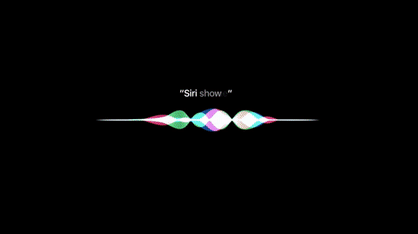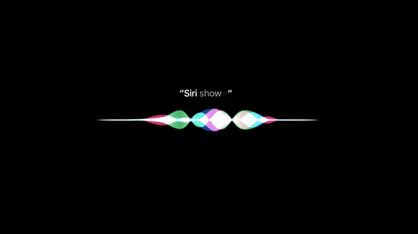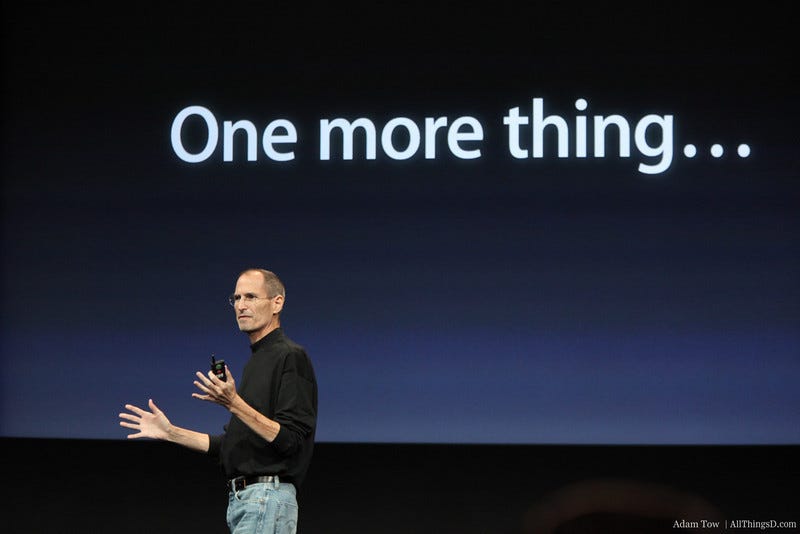
AI: Apple's ambitious 'App Intents' for AI Siri. RTZ #811
Yesterday, I discussed Amazon finally getting ready to launch an AI enabled Alexa, with its Echo family of hardware. The new service is called Alexa Plus, available as a subscription service, but included for ‘free’ to hundreds of million Amazon Prime Customers.
Voice enabled AI is the current hot modality for all the LLM AI comnpanies, with OpenAI, Perplexity, Google Gemini, Amazon, and of course Apple with its Apple Intelligence, in this corner of the AI Tech Wave.
Apple of course has had it’s AI revamp of Siri, which has had its own delays of late. And Apple has its partnership with OpenAI and ChatGPT integration, that is also another element behind the new Siri.
But there is news on Apple’s plans with an AI voice powered Siri, that is worth noting and discussing. It centers around Apple ‘App Intents’, which is a set of Apple software frameworks that allows millions of developers to do some fresh and creative things. It helps them expose their app’s functionality to the operating system and other apps of the platform involved (Mac, iPhone, etc.) in a ‘lighter way’.
This enables deeper integration with Siri, as well as Spotlight in Mac OS, and a whole host of other system features. It uniquely allows users to interact with app actions and content, EVEN WHEN THEY ARE NOT actively using the app.
It has the potential to unleash global creativity by developers within the apple ecosystem.
This cold be cool when it’s deployed at scale.
Bloomberg lays it out well in a piece worth reading in full. Titled “Apple’s Upcoming AI Voice Control Will Change How People Use iPhones”, it highlights Apple’s twist on differentiating an AI Enabled Siri vs other AI voice products like Google Gemini, Amazon Alexa, OpenAI’s voice mode, and many others:
“Apple’s upcoming voice-control feature for the new Siri could be an under-the-radar hit — if it works. Also: Tim Cook placates Trump with minor supply-chain changes (and a bar of gold), and Apple is finishing up work on iOS 26 and Liquid Glass 1.0. Lastly, the iPhone maker loses a fifth AI engineer to Meta.”
“Apple’s decision to delay its next-generation Siri features this year set off a storm inside the company, leading to executive changes and underscoring to the public just how far behind the company is in artificial intelligence.”
A core feature that Apple has been hinting at is an AI powered Siri that could safely leverage the personal information of its almost two and a half billion users of iPhones, Macs, iPad and other Apple devices, lodged in scores of Apple Apps across its ecosystem.
“But here’s the thing: The uproar over the delays largely missed the biggest reason to be disappointed. Many Apple watchers lamented that Siri wouldn’t be able to tap into personal information to better handle requests — say, by finding a particular file sent from a friend, locating a song that was texted to you, or surfacing your driver’s license number from your photos.”
“This capability was the star of Siri’s demo at the 2024 Worldwide Developers Conference, with Apple showing the voice assistant pulling information from across texts, emails and maps to construct an itinerary. The Siri feature also was in a now-pulled TV advertisement with Bella Ramsey that got Apple sued for false advertising.”
The media has this pulled ad and Siri feature, on a non-stop loop of an example of why Apple and Siri are ‘behind’ on AI:
“So it was unfortunate when this feature was delayed, but — in my view — it’s not the biggest deal.”
But as Steve Jobs liked to say, there’s “one more thing‘“:
“The real game changer, one Apple barely mentioned, is an upgraded version of App Intents that could finally make Siri the true hands-free controller of your iPhone.”
“Here’s what the new App Intents will mean: With nothing but your voice, you’ll be able to tell Siri to find a specific photo, edit it and send it off. Or comment on an Instagram post. Or scroll a shopping app and add something to your cart. Or log in to a service without touching the screen. Essentially, Siri could operate your apps like you would — with precision, inside their own interfaces.”
“If Apple nails this, it’s not just a nice ease-of-use upgrade — it’s the fulfillment of the vision Siri promised nearly 15 years ago. And it’s the key to Apple’s next hardware developments. The company’s upcoming home devices (a smart display set for next year and a tabletop robot after that) will rely on this tech to function naturally.”
This is a cool aspiration, one tough to pull off across a complex ecosystem of Apple hardware, software, and third party apps by millions of developers.
“Without the new App Intents, those products would potentially be even less compelling than the devices that Amazon.com Inc. and Alphabet Inc.’s Google launched half a decade ago. That’s why the Siri delay has rippled through the company’s other product plans. It’s already led to the smart display being pushed back an entire year.”
“Apple knows what’s at stake. Internally, testing and perfecting this feature has become a top priority for its global data operations team, the same group that compares Siri and Apple Intelligence outputs to raw data, hunting for errors and providing information for potential fixes. Apple doesn’t want to be in the news again for overpromising and under-delivering.”
But it looks like this is the current game plan at Apple HQ:
“The plan now is to ship the feature alongside a broader Siri infrastructure overhaul in the spring and market it heavily. But there’s some concern inside the company, I’m told. Engineers have been struggling to ensure that the system works with a sufficient number of apps and is accurate enough to handle high-stakes scenarios. There are worries about the software failing in categories where precision is nonnegotiable, like in health or banking apps.”
“The plan now is to ship the feature alongside a broader Siri infrastructure overhaul in the spring and market it heavily.”
It’s not a plan without issues and challenges:
“But there’s some concern inside the company, I’m told. Engineers have been struggling to ensure that the system works with a sufficient number of apps and is accurate enough to handle high-stakes scenarios. There are worries about the software failing in categories where precision is nonnegotiable, like in health or banking apps.”
The above ‘teething problems’ are echoes of what Amazon has and is undergoing with its AI revampof Amazon Alexa that I discussed at length yesterday.
And although Amazon’s ambitions with Alexa are quite different than Apple’s with Siri, both companies share the very heavy issues of integrating the old with the new, the software that’s within the company’s ecosystem, and the software that is spread out across a global third-party app ecosystem.
That is the rub, but also the big opportunity. So lot to wait for and expect from Apple in this corner of the AI Tech Wave. Stay tuned.
(NOTE: The discussions here are for information purposes only, and not meant as investment advice at any time. Thanks for joining us here)











